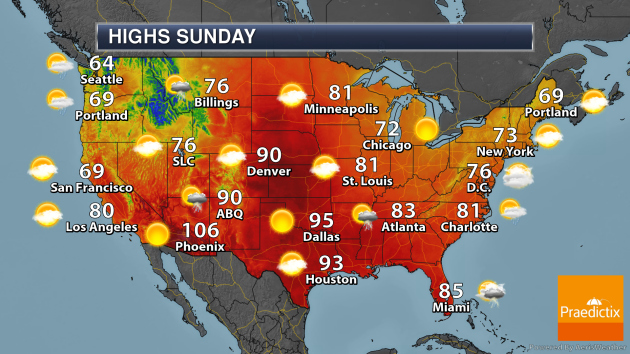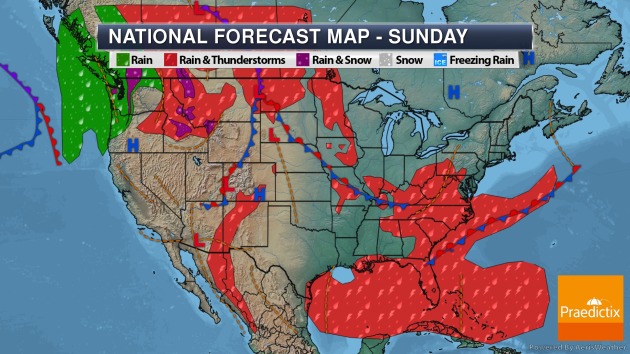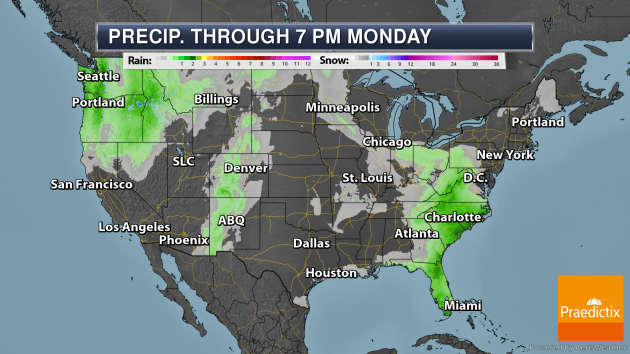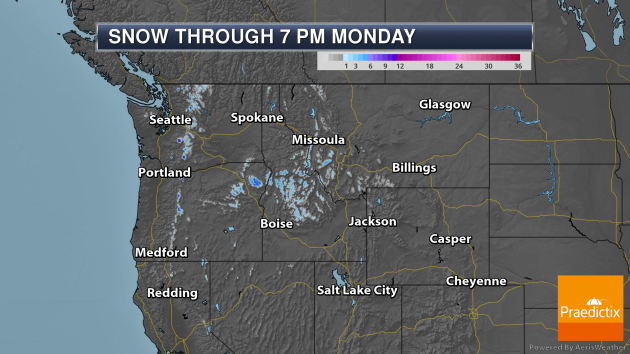National Weather Forecast


As we head into Sunday, a couple of areas of low pressure along with their frontal boundaries will help produce some showers and storms across the Northern and Central Plains. Rain and higher elevation snow will continue across portions of the Northwest. A stalled out system will produce more rain in the Southeast and Mid-Atlantic states.

As we look at precipitation, the heaviest through Monday is expected to be across portions of the Southeast where up to 3″ of rain will be possible.

Meanwhile, yes, we are still watching the potential of a few inches of snow on some of the mountains in the Northwest.
_______________________________________________
May 2020 tied for hottest on record for the globe
More from NOAA: “After registering unusually high temperatures across the globe, May 2020 tied with 2016 as the world’s warmest May on record, according to scientists at NOAA’s National Centers for Environmental Information.The heat wasn’t just limited to May. The three-month season (March through May) and the year to date (January through May) ranked second-warmest in the 141-year global record.“
National Weather Service proposes eliminating ‘advisories’ to simplify severe warning system
More from the Capital Weather Gang: “Do you know the difference between a flash flood watch and a flood advisory? How about a winter weather advisory vs. a blizzard watch? Or, more importantly, a tornado watch vs. a tornado warning? Deciphering the myriad alerts issued by the National Weather Service isn’t easy. With roughly 100 different warnings or advisories the agency disseminates during hazardous weather, it comes as no surprise that mix-ups among the public are routine. Now, the National Weather Service is giving its warning paradigm a facelift to reduce confusion and streamline the process of communicating weather hazards.“
Climate crisis to blame for $67bn of Hurricane Harvey damage
More from The Guardian: “At least $67bn of the damage caused by Hurricane Harvey in 2017 can be attributed directly to climate breakdown, according to research that could lead to a radical reassessment of the costs of damage from extreme weather. Harvey ripped through the Caribbean and the US states of Texas and Louisiana, causing at least $90bn of damage to property and livelihoods, and killing scores of people. Conventional economic estimates attributed only about $20bn of the destruction to the direct impacts of global heating. Climate breakdown is known to be making hurricanes stronger and may make them more likely to occur, but separating the effects of global heating from the natural weather conditions that also cause hurricanes is complex.“
_______________________________________________
Thanks for checking in. Don’t forget to follow me on Twitter (@dkayserwx) and like me on Facebook (Meteorologist D.J. Kayser)!
– D.J. Kayser

